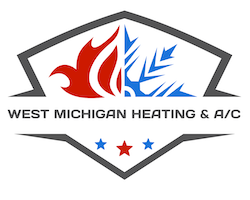Completing the search for your first home is thrilling. You’re likely trying to keep track of numerous details about making the right choice. We believe that understanding your potential new HVAC system is vital. The property’s HVAC system represents a substantial investment and source of potential long-term costs, illustrating why a detailed inspection should be a top priority for first-time homebuyers.
In this guide, we’ll share seven tips for discovering all there is to know about a home’s heating and cooling setup. And if you want a more in-depth opinion from the experts, consider calling West Michigan Heating & Air Conditioning Services. Our staff can weigh in on your options with industry insights that are second to none.
1. What Type of HVAC System Is It?
Start by clarifying what kind of HVAC system the home includes. Furnaces tend to last longer compared to air conditioners, and some of the latest types of HVAC equipment like heat pumps boast average life spans that are even longer. Knowing the make and specific model provides a much better sense of how much routine maintenance it might need.
2. What Is the Current System’s Age?
It’s just as smart to learn how old the HVAC system is when you’re looking at a potential new home. On average, HVAC systems should survive for around 10-12 years. Knowing when it was installed helps you plan for possible repair needs or when it might break down. Older systems may be more vulnerable to problems, so planning ahead of time for a replacement unit could be necessary sooner than you thought.
3. Is the Warranty Still in Effect?
Check if the HVAC system is covered by a warranty. If it is, this can lower maintenance expenses. HVAC warranties typically include parts and labor, but specifics will vary. Don’t forget to look into any terms you don’t recognize to make sure you fully understand your coverage and potential out-of-pocket costs.
4. When Was the Last Time It Received Maintenance?
Don’t forget to check the maintenance history of the HVAC system, if the records are accessible. This service history can demonstrate if the system constantly broke down or how much upkeep was provided. Inquire about key tasks such as changing the air filter, which can indicate it received regularly scheduled tune-ups.
5. What Are the Energy Efficiency Ratings?
Finding a home that features an HVAC system with great energy efficiency isn’t just smart; it leads to more manageable utility bills and a smaller environmental impact. Try and find the seasonal energy efficiency ratio (SEER) ratings for air conditioning and the annual fuel utilization efficiency (AFUE) for furnaces. High SEER ratings mean more efficient cooling throughout the season, while higher AFUE ratings indicate that the fuel is efficiently converted into useable heat.
6. Can You Spot Trouble After Completing an Informal Inspection?
Even without heating and cooling expertise, it’s still a good idea to examine the HVAC system yourself. Keep an eye out for any concerning items that haven’t been mentioned by the seller. This might consist of odd sounds, spots with uneven heating or cooling and attempts at concealing any serious damage.
7. Have You Asked Your Local HVAC Professional?
If you’re still hesitant to make an offer because of the current state of the HVAC system, it’s wise to get input from experienced HVAC professionals. They will be much more likely to catch things you may not know about, like refrigerant leaks, bad electrical connections or damaged ductwork.
A Chat with West Michigan Heating & Air Conditioning Services Helps Take the Stress Out of Your Home-Buying Journey
Choosing your first home is meant to be a joyful event, and West Michigan Heating & Air Conditioning Services will do everything possible to ensure that doesn’t change. Reach out with us at (616) 319-1436. We can go over the details about how our HVAC services give you peace of mind, giving you what you need to step into your new home with confidence.


